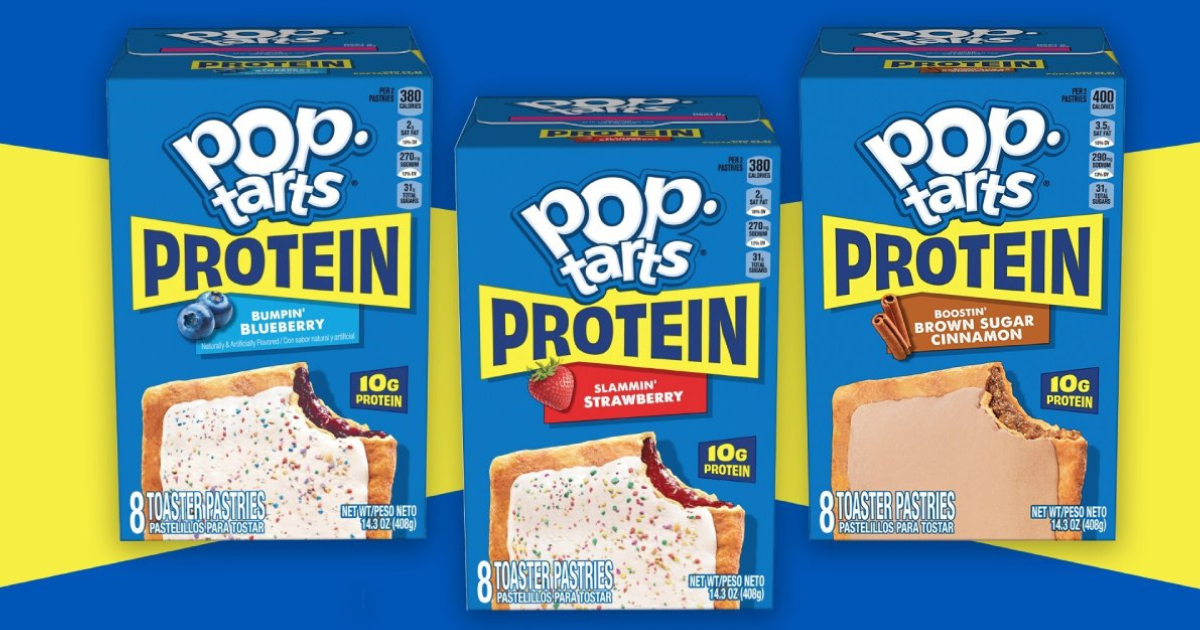Protein Products Blend Nostalgia with Nutrition

By Mark Seavy
Food and beverage brands are increasingly gaining a taste for licensing across high-protein products like nutrition bars, powders, and drinks
In many cases, this is accomplished by adding protein to nostalgic brands to deliver both emotional resonance and nutritional benefits that attract consumers.
This emphasis on healthy food options is driving a high-protein snack market that hit $4.3 billion in sales in 2024, according to the research firm AInvest. The market is forecast to increase 7.4% annually through 2033, when it is expected to reach $7.5 billion on the strength of growing nostalgia and wellness tends.
These protein-focused strategic and licensing partnerships are expected to capture 63% of consumers while expanding distribution through ick-and-mortar and digital platforms. Indeed, Trubar expects to be selling its five-pack of Wicked-branded protein bars through 3,900 stores when its program launches November 1 at Target, Albertsons, and Safeway, said President Pardeep Sangha. Protein bars under its own brand are already available through 1,600 Target stores, he said.
Kellanova, meanwhile, launched Pop-Tarts with 10 grams of protein, a major change for a 61-year-old brand that doubles as a breakfast and snack food known for a sweet filing inside a rectangular-shaped pastry crust. The Pop-Tarts recipe previously contained just three grams of protein, which typically accounts for 16% of U.S. consumers’ daily calory intake.
Pop-Tarts was one of the more recent entrants in the “newstalgia” trend that has swept licensing and attracted younger consumers who, in many cases, are discovering these brands for the first time via social media.
Nutrabolt’s C4 energy drink brand has a licensed ingredients deal with Hershey for protein powders. That includes a pre-workout version that launched last fall with 16 grams of protein under the Bubble Yum label, which was introduced by Hershey’s LifeSavers Division in 1975. And while protein powders have often been associated with unpleasant flavors and bad aftertastes, Hershey’s Milk Chocolate and Reese’s peanut flavors have sweetened the deal. Nutrabolt also licensed fruit-flavored Unilevers’ Popsicle and Mars Inc.’s Skittles and Starburst ingredients for its drinks.
1440 Foods, meanwhile, licensed Post Consumer Brands’ Fruity Pebbles and Cocoa Pebbles for its Pure Protein bars containing 20 grams of protein, 190 calories, and three grams of sugar. It also has an agreement covering McCormick & Co.’s Frank’s RedHot ingredients for Pure Protein popped chips. And then there is Trubar’s plant-based protein bars that will launch under Universal Pictures’ Wicked in the run up to the Wicked: For Good film’s release on November 21.
“Consumers are willing to pay a premium for snacks that deliver both emotional resonance and functional benefits,” said Edwin Foster, an equity analyst at AInvest. “As the market evolves, companies that master this balance will not only capture market share but redefine the boundaries of the protein aisle.”
Yet as more companies enter the protein products category, many are leveraging licensing in an effort to stand out in the increasingly crowded market.
Some industry observers believe it is a short-term marketing ploy, however. And Consumer Reports has been critical of protein powders, noting that they carry troubling levels of toxic heavy metals. In a recent test of 23 protein powders and ready-to-drink shakes, Consumer Reports found heavy metal contamination has become more common among protein products—potentially presenting risks that could grow alongside the industry itself.
“Everyone is trying to hitch their wagon to the protein trend as people are changing their diets and are becoming more health conscious,” a food licensing executive said. “I think looking at the nutrition labels has become more of a challenge and yes, it has protein, but that may be 1% of your recommended daily allotment.”




